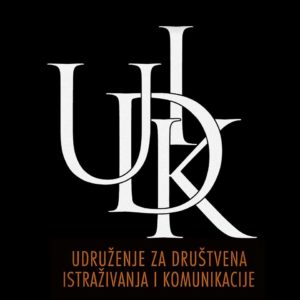 Association for Social Research and Communications (UDIK) strongly condemns and expresses regret because of the prohibition established by the Ministry of Internal Affairs of the Sarajevo Canton Police Centre regarding peaceful gathering in front of the building of Croatian Embassy in Sarajevo on the occasion of the 20th anniversary of the crimes committed in the military operation “Storm”.
Association for Social Research and Communications (UDIK) strongly condemns and expresses regret because of the prohibition established by the Ministry of Internal Affairs of the Sarajevo Canton Police Centre regarding peaceful gathering in front of the building of Croatian Embassy in Sarajevo on the occasion of the 20th anniversary of the crimes committed in the military operation “Storm”.
The meeting, scheduled for Monday August 3rd, 2015, was aimed to pay tribute to the victims of the “Storm” and to remind the public of the crimes of the Croatian army against the civilian Serbian population of the Republic of Croatia that today proudly celebrates. By this act in this way PU Center Sarajevo has a role to protect the Republic of Croatia, and this kind of gathering bans. In this regard, this is the worst and scariest picture that we can send from Sarajevo, and we wanted something different. With the prohibition of paying tribute to the victims of the “Storm”, Sarajevo sent a clear message that in Sarajevo there is no space where we can talk publicly about the massive violations of human rights in the former Yugoslavia. This is proof of solidarity with the policy conducted by the Republic of Croatia, and it is a policy that aims to discrimination and the glorification of those responsible for war crimes against Serbian civilians in Croatia.
We remind that the freedom of assembly is guaranteed by the European Convention for the Protection of Human Rights and Fundamental Freedoms – Article 1. The Ministry of Internal Affairs of the Canton Sarajevo selective bans rallies and violates freedom of peaceful assembly, which is a fundamental right for all citizens of Bosnia and Herzegovina guaranteed by the Constitution and international documents ratified by our country.
This is a message to us, and all others who are working on dealing with the past that simply is not the topic that will be of interest to the political elite in the future. Prohibit peaceful assembly is something that does not work in a democratic society and especially not in a society that has experienced a similar fate.
Croatian President Kolinda Grabar Kitarovic expressed her solidarity with the victims of the genocide in Srebrenica, but now this time institutions in Sarajevo expressed support to the policy of the Republic of Croatia.
Despite the ban on the gathering, on Monday August 3rd, 2015, UDIK will send a letter to the president of the Republic of Croatia and one more time call her on the moral and political responsibility towards all citizens who live in Croatia. Her (not) distancing from crimes will have long-lasting effects on relations in the region, but also a serious understanding of the Croatian conception of the Western Balkans towards the EU.
 UDIK Udruženje za društvena istraživanja i komunikacije
UDIK Udruženje za društvena istraživanja i komunikacije

